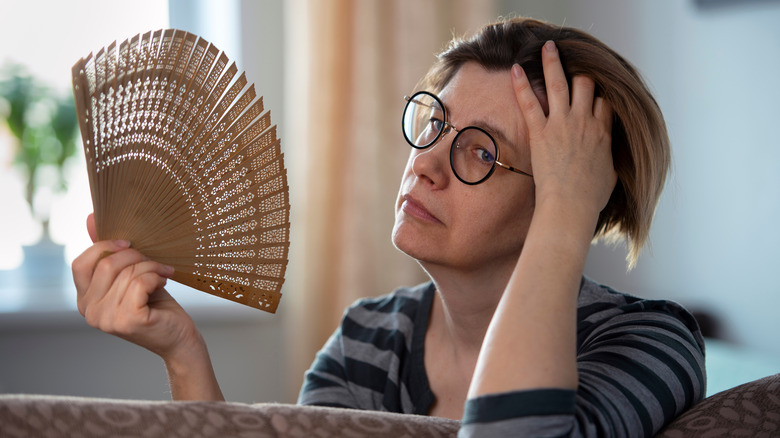Is It Normal For Alcohol To Make Your Face Feel Weird?
According to a 2020 report from the National Institute on Alcohol Abuse and Alcoholism, Americans drank 2.35 gallons per capita in 2018. Of course, drinking has side effects. When you drink, your body undergoes many short-term changes. Some of these include changes in mood, lowered inhibition, dizziness, nausea and vomiting, loss of coordination, and trouble focusing, just to name a few, explains Healthline. However, there is one reaction that may seem strange at first — your face may get flushed, meaning it can feel hot, tingly, and get red.
Normally, when your face suddenly gets flushed, hundreds of blood vessels under your skin open up, filling with blood, making your cheeks and forehead turn a different color, according to MedicalNewsToday. This is usually normal and can occur when you're anxious, scared, embarrassed, or excited, although it can also be a sign of an underlying medical condition. However, when you drink alcohol, there is a more complicated reason for why your face feels weird.
You may lack a certain enzyme
Alcohol can cause many different effects. During a session of drinking, your body digests alcohol in a different way than food, according to Bowling Green State University. Most of the alcohol is absorbed into the bloodstream through the stomach lining and small intestine. However, many people are unable to properly digest alcohol. An enzyme called alcohol dehydrogenase (ADH) helps our bodies process ethanol and another enzyme known as aldehyde dehydrogenase 2 (ALDH2) helps our body convert it to nontoxic acetic acid, explains Cleveland Clinic. But a genetic mutation can occur, making ALDH2 inactive.
This type of alcohol intolerance is especially common in people of East Asian descent, according to Byrdie. It's estimated that 20-50% of people with East Asian heritage are unable to properly digest alcohol. If toxins build up in the body, it can cause skin reactions, like feeling flushed. If flushing only happens intermittently when you drink, it may be a specific type of alcohol that is causing the issue and not necessarily indicative of alcohol intolerance.


